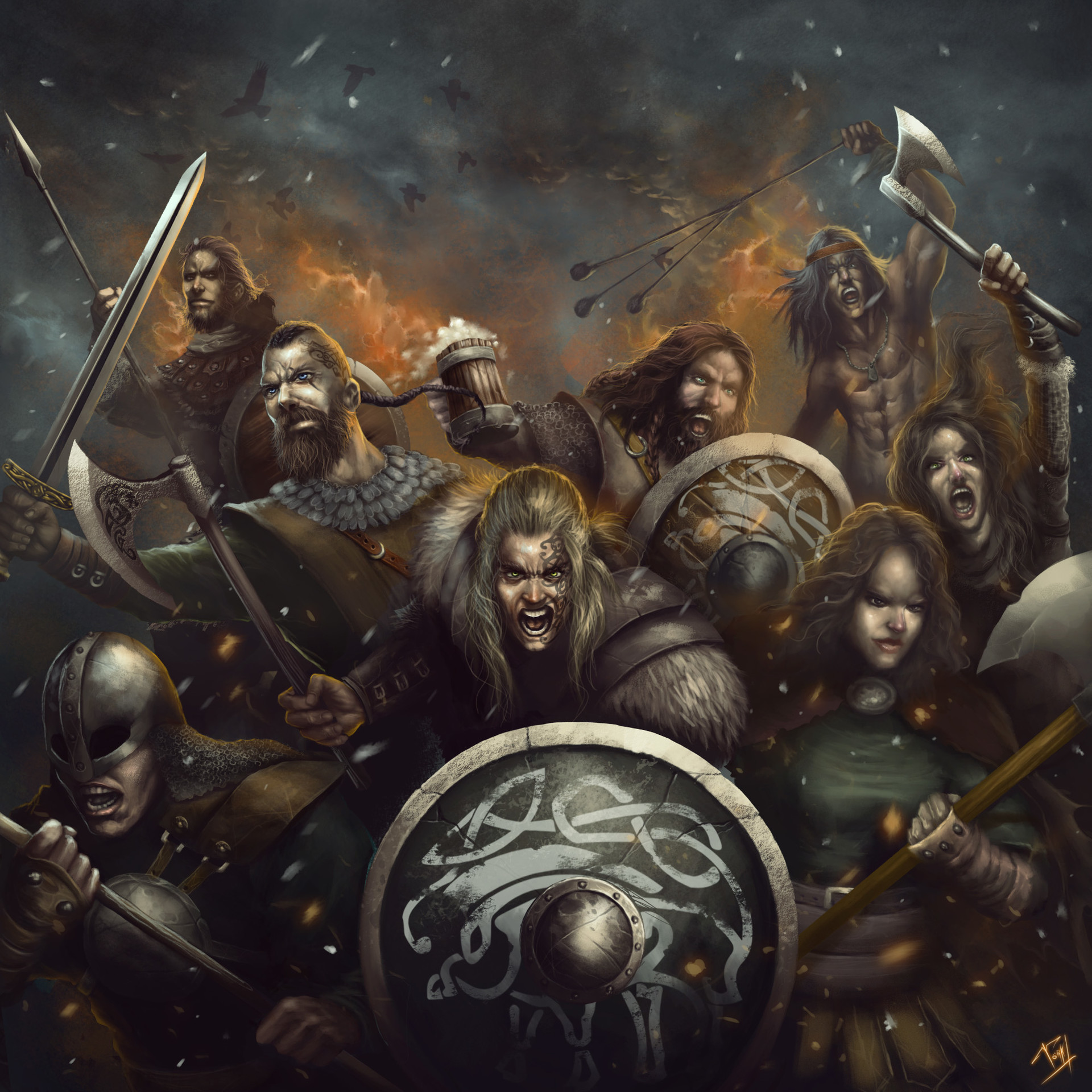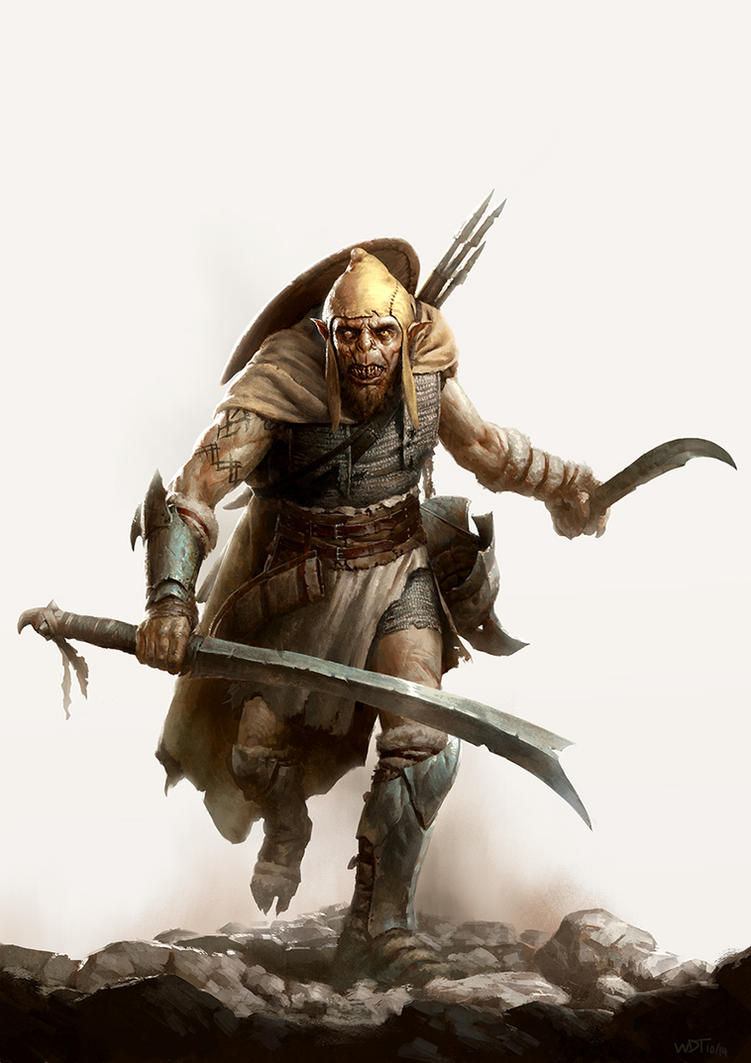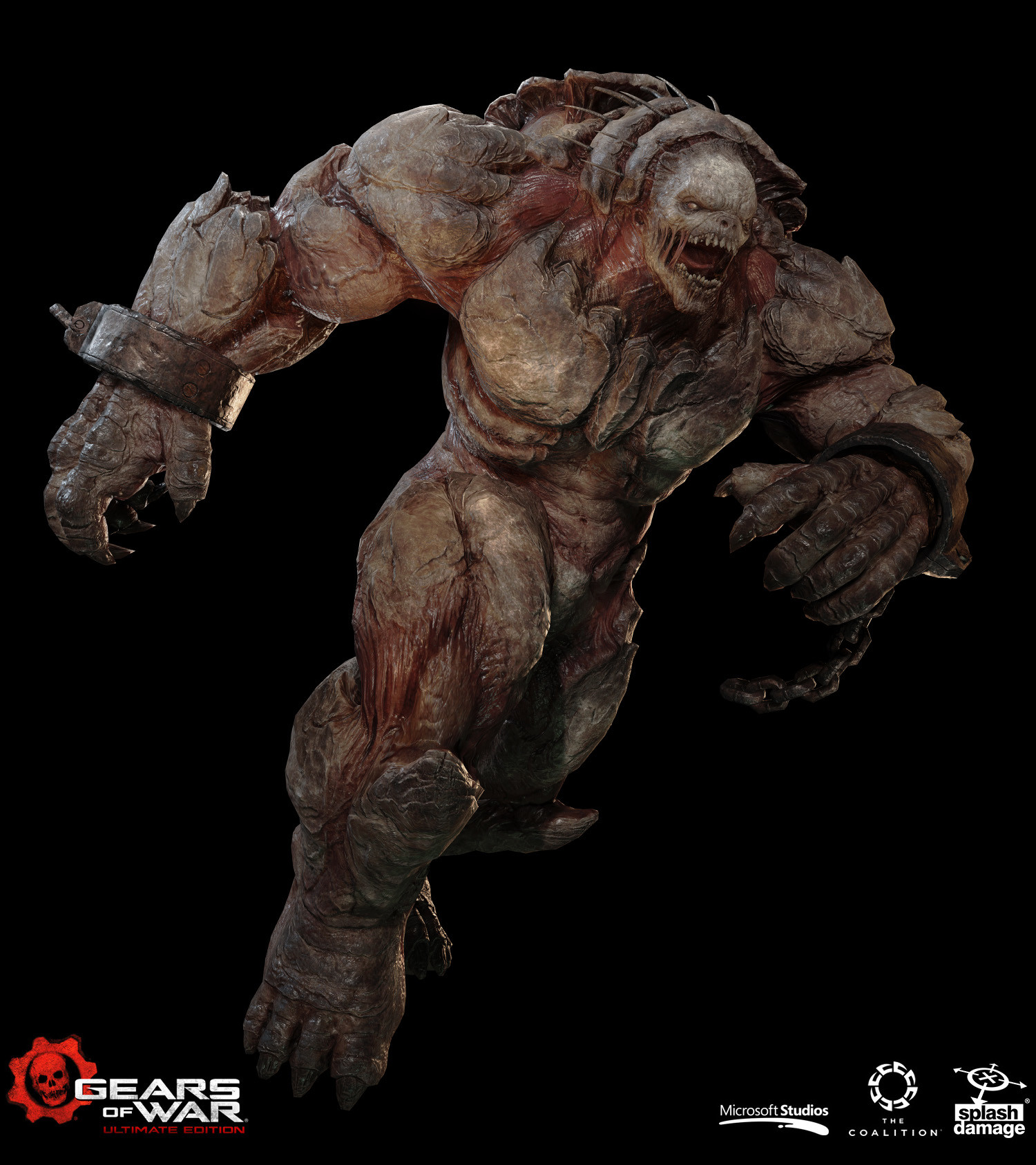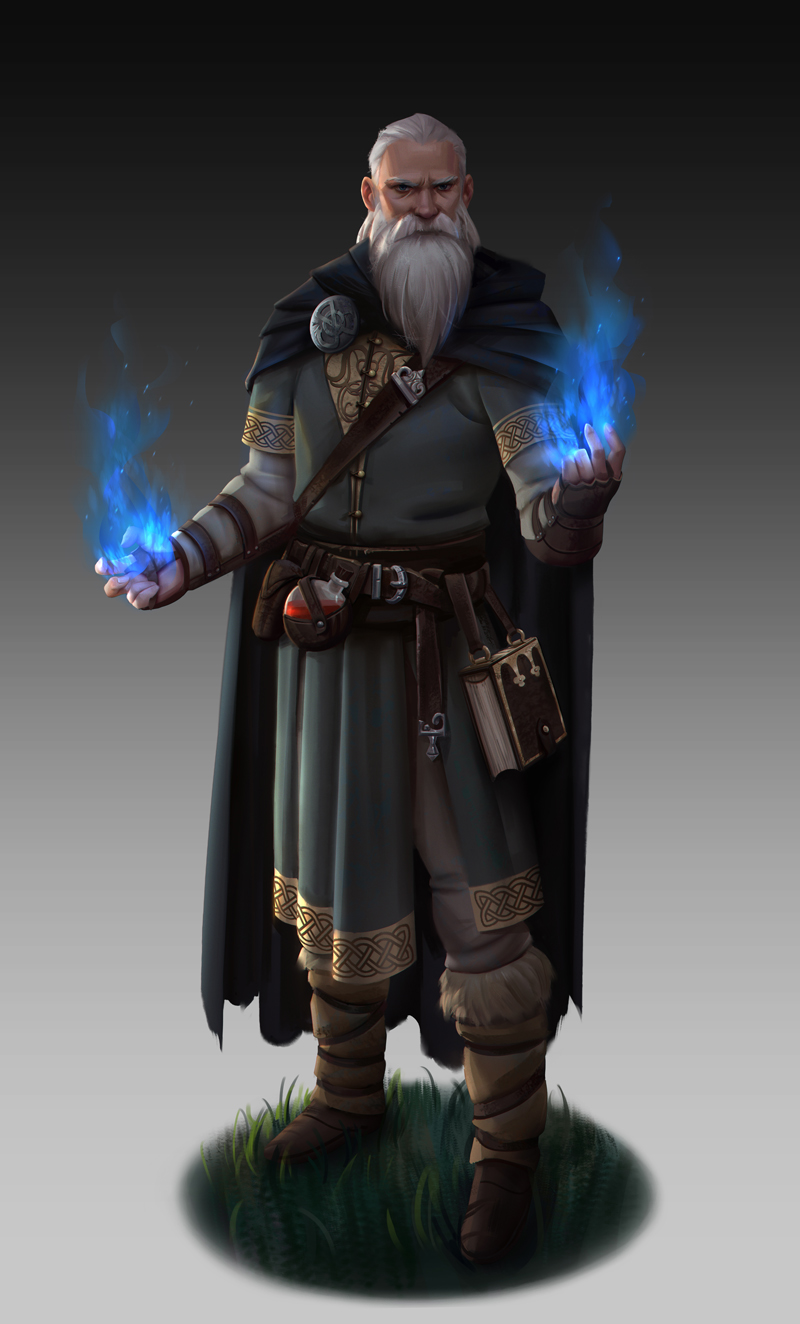Here's what I got so far for my sheet.

Each of the Clans of Tarkima are ruled by their respective Chieftains and their inner circle of lieutenants, the Chieftain's rule is absolute, their word and blade law. If the current-sitting Chieftain were to meet an unfortunate fate, the selection process of succession often is done so in two ways. If the Chieftain was slain in a duel of honor against his opponent, the challenger would then by right, become the new ruling chieftain. If the Chieftain was to die of natural causes, or slain in battle, the new ruling chieftain would then be decided in a grand fighting tournament, the best warriors of the Clan would gather to battle in fierce arena combat for the right to rule the Clan.
The Lands of Tarkima while varied, they are rugged and harsh, ranging from snow covered plains and forests in the far north, green highlands, plains and rolling hills making up the central regions, the volcanic ashlands of Rothgul to the east, and mountainous regions that stretch across the southern border. These Mountains have been referred to by the Tarkimans as Jotanu's Gate, Followers of the Earth Primordial Lord revere it as his supposed magnum opus and those who lack respect for the mountains or are ill prepared will no doubt perish in the Gate's perilous jagged labyrinth. Jotanu's Gate has a quite obvious strategic purpose as well, forming a natural border wall between Tarkima and the rest of the Continent.
The many peoples of Tarkima are one of battle, honor, family, and for the select, pure savagery. Strength and skill above all else is highly valued to the People of Tarkima, with only the strongest of them all being able to lead the Clans or die. Religion in Tarkima centers around the worship of the mythical Primordials as Gods, several Primordial Lords and their Offspring once reigning over these savage lands. There also exists growing order that reveres the long dead Prophetess as a Divine Messenger of the Gods, a sentiment not too well shared to wider Tarkiman Society. When the Primordials had vanished from the face of Askor, it was said that the Gods had ascended into a higher plane of existence, out of the reach of their followers, the reason told by the many clergies that the Gods themselves saw fit to craft a new paradise for the devout, a life after death, a realm beyond the mortal world.
Mages are quite a uncommon sight in Tarkima, those found are declared Blessed, their bloodline tracing back to the Primodrial Lords. Mages found will find themselves in high positions in Tarkiman Society, either as members of the respective Priesthoods of the Gods, as specialized warriors in the warband, as close Advisors to the Chieftains, some Mages even become Chieftains themselves.
Crime is wide spread like in any other region, how it is handled in Tarkima is rather unorthodox. In determining one's innocence or guilt, the Tarkiman Clans will have the accused go through the Judgment, Trial by combat. The Accused will be made to fight the fiercest beasts or warriors that Tarkima has to offer, if they survive, their innocence is guaranteed if not, well they've met their brutal end. The Land of Tarkima is ruled by hundreds of Clans, but in actuality, the land is ruled by the three greatest of Clans, Ardir, Fervari and Brakor.



Grogar Males

Grogar Female

With the exception of Ardir, the armies of the Tarkiman Clans are a rather disorganized rabble compared to the ordered and structured armies of more civilized kingdoms, the rank beyond Chieftain being meaningless. Tarkiman warriors of any race typically are organized into Warbands, said Warbands vastly differ depending on function, a Warband making up up a dozen or so warriors, to hundreds to thousands of warriors. Leaders of these Warbands are often hand-picked by the Chieftain himself or members of his Inner Circle.
Warbands of the Three Great Clans quite differ from one another, each Clan adopting their own style and tactics. The Fervari for one, are by far the most militaristic and Industrial of the Clans, favoring swarms of well-armored warriors and beasts, as well as employing the use of strange war machines churned out by the Foundries of Rothgul. Warriors of Brakor, while lacking the industrial might of the Fervari, make up for in numbers and savagery, the Clan of Brakor favoring hordes of swift, lightly, if crudely armored warriors and beasts, a typical trait of the more smaller clans.
Clan Ardir however, is a far different beast compared to the other two.

![]()
Clans of Tarkima

Government
Each of the Clans of Tarkima are ruled by their respective Chieftains and their inner circle of lieutenants, the Chieftain's rule is absolute, their word and blade law. If the current-sitting Chieftain were to meet an unfortunate fate, the selection process of succession often is done so in two ways. If the Chieftain was slain in a duel of honor against his opponent, the challenger would then by right, become the new ruling chieftain. If the Chieftain was to die of natural causes, or slain in battle, the new ruling chieftain would then be decided in a grand fighting tournament, the best warriors of the Clan would gather to battle in fierce arena combat for the right to rule the Clan.
Geography
The Lands of Tarkima while varied, they are rugged and harsh, ranging from snow covered plains and forests in the far north, green highlands, plains and rolling hills making up the central regions, the volcanic ashlands of Rothgul to the east, and mountainous regions that stretch across the southern border. These Mountains have been referred to by the Tarkimans as Jotanu's Gate, Followers of the Earth Primordial Lord revere it as his supposed magnum opus and those who lack respect for the mountains or are ill prepared will no doubt perish in the Gate's perilous jagged labyrinth. Jotanu's Gate has a quite obvious strategic purpose as well, forming a natural border wall between Tarkima and the rest of the Continent.
Culture
The many peoples of Tarkima are one of battle, honor, family, and for the select, pure savagery. Strength and skill above all else is highly valued to the People of Tarkima, with only the strongest of them all being able to lead the Clans or die. Religion in Tarkima centers around the worship of the mythical Primordials as Gods, several Primordial Lords and their Offspring once reigning over these savage lands. There also exists growing order that reveres the long dead Prophetess as a Divine Messenger of the Gods, a sentiment not too well shared to wider Tarkiman Society. When the Primordials had vanished from the face of Askor, it was said that the Gods had ascended into a higher plane of existence, out of the reach of their followers, the reason told by the many clergies that the Gods themselves saw fit to craft a new paradise for the devout, a life after death, a realm beyond the mortal world.
Mages are quite a uncommon sight in Tarkima, those found are declared Blessed, their bloodline tracing back to the Primodrial Lords. Mages found will find themselves in high positions in Tarkiman Society, either as members of the respective Priesthoods of the Gods, as specialized warriors in the warband, as close Advisors to the Chieftains, some Mages even become Chieftains themselves.
Crime is wide spread like in any other region, how it is handled in Tarkima is rather unorthodox. In determining one's innocence or guilt, the Tarkiman Clans will have the accused go through the Judgment, Trial by combat. The Accused will be made to fight the fiercest beasts or warriors that Tarkima has to offer, if they survive, their innocence is guaranteed if not, well they've met their brutal end. The Land of Tarkima is ruled by hundreds of Clans, but in actuality, the land is ruled by the three greatest of Clans, Ardir, Fervari and Brakor.



Grogar Males

Grogar Female

Military
With the exception of Ardir, the armies of the Tarkiman Clans are a rather disorganized rabble compared to the ordered and structured armies of more civilized kingdoms, the rank beyond Chieftain being meaningless. Tarkiman warriors of any race typically are organized into Warbands, said Warbands vastly differ depending on function, a Warband making up up a dozen or so warriors, to hundreds to thousands of warriors. Leaders of these Warbands are often hand-picked by the Chieftain himself or members of his Inner Circle.
Warbands of the Three Great Clans quite differ from one another, each Clan adopting their own style and tactics. The Fervari for one, are by far the most militaristic and Industrial of the Clans, favoring swarms of well-armored warriors and beasts, as well as employing the use of strange war machines churned out by the Foundries of Rothgul. Warriors of Brakor, while lacking the industrial might of the Fervari, make up for in numbers and savagery, the Clan of Brakor favoring hordes of swift, lightly, if crudely armored warriors and beasts, a typical trait of the more smaller clans.
Clan Ardir however, is a far different beast compared to the other two.
Heroes
History
Relations
Characters
Olaf Tarin


